Explore the Okavango Delta with Botswana Tours from South Africa
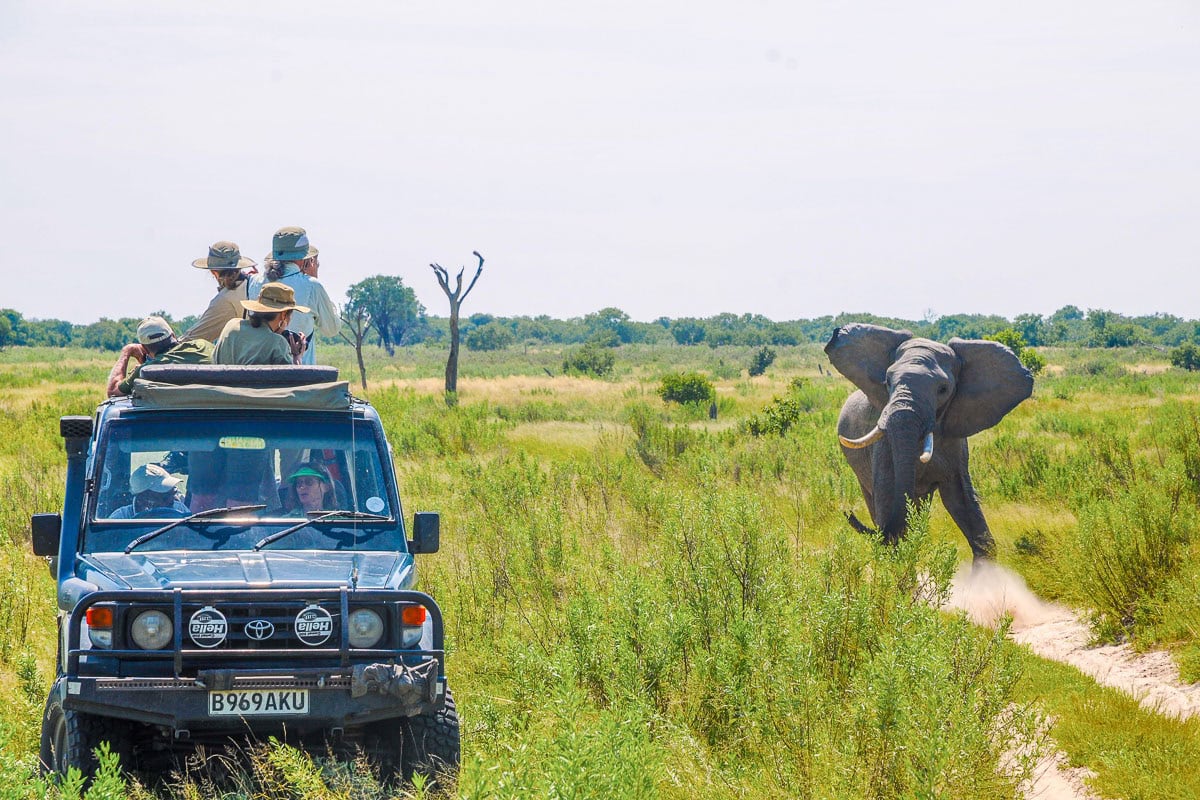
Introduction
Overview of the Okavango Delta
The Okavango Delta, a UNESCO World Heritage Site, is one of the world's largest inland deltas, spanning approximately 15,000 square kilometres in northern Botswana. This vibrant ecosystem is formed by the Okavango River, which floods the area annually, creating lush grasslands, winding waterways, and lagoons teeming with life. The delta is home to a staggering diversity of wildlife, including elephants, hippos, and over 400 bird species, making it a prime destination for nature lovers and adventure seekers alike.
As visitors explore the delta, they may find themselves gliding silently through the waterways in traditional mokoros or hiking the fringes of the wetlands, encountering wildlife along the way. This unique melding of ecosystems fosters an unparalleled adventure for those seeking to immerse themselves in nature.
Significance of Botswana Tours from South Africa
Botswana tours from South Africa offer an exceptional opportunity for travellers to discover the splendour of the Okavango Delta while conveniently beginning their journey from nearby South Africa. The proximity makes it easy to access the delta's breathtaking landscapes and rich wildlife without the hassle of lengthy travels.
Key benefits of choosing Botswana tours include:
- Convenient Travel: Taxis and shuttle services connect major South African cities to Botswana's border, making the trip smooth and efficient.
- Diverse Experiences: Tours often offer packages that combine wildlife safaris, cultural experiences, and relaxation, ensuring a well-rounded adventure.
- Expert Guidance: Accompanied by knowledgeable guides, tourists gain insights into the delta's ecosystems and cultural histories.
With these advantages, embracing a Botswana tour enriches the adventure and deepens the connection to one of southern Africa's most spectacular destinations.

Discovering the Okavango Delta
Unique Ecosystem of the Okavango Delta
The Okavango Delta is not just a destination; it is an ecological wonderland. This unique inland delta is characterised by its seasonal flooding, which creates a mosaic of habitats ranging from swamps to woodlands and savannahs. The interaction of water and land here fosters an environment where both flora and fauna thrive, forming some of the most biodiverse ecosystems on the planet.
Key features of the delta's ecosystem include:
- Flooding Cycle: Approximately from June to August, the delta experiences floods, transforming the landscape and supporting aquatic life.
- Diverse Habitats: Various environments, including papyrus swamps, crocodile-infested lagoons, and sandy islands, support a wide range of species.
- Fascinating Flora: The delta features a mixture of species, from exquisite water lilies to towering acacia trees, allowing for incredible natural scenery.
Wildlife Encounters in the Delta
The true allure of the Okavango Delta lies in its remarkable wildlife encounters. The delta serves as a sanctuary for an array of species, providing a thrilling experience for anyone keen on spotting animals in their natural habitat.
Visitors can expect to encounter:
- Large Herbivores: Elephants and buffalo roam freely, with the delta hosting one of the largest populations of elephants in Africa.
- Predators: The region is home to lions, leopards, and wild dogs, offering exceptional opportunities for wildlife watching.
- Birdlife: Birdwatchers will delight in spotting species such as the African Fish Eagle and the Malachite Kingfisher.
Exploring the delta's diverse wildlife is not just a sight to behold; it is an immersive experience that connects visitors to nature in extraordinary ways. Whether on a guided safari or a mokoro excursion, the wildlife encounters in the Okavango are bound to leave lasting memories.

Planning a Botswana Tour from South Africa
Choosing the Right Tour Package
Selecting the right tour package is crucial for a fulfilling experience in Botswana's stunning landscapes. With a range of options available, it is essential to consider personal interests and travel styles before making a decision.
When choosing a tour package, it is beneficial to keep the following aspects in mind:
- Duration of the Trip: Look for packages that fit your time availability—options may range from short excursions to comprehensive multi-day safaris.
- Activities Included: Ensure the itinerary covers activities that excite you, such as game drives, mokoro rides, or cultural experiences with local communities.
- Accommodation Type: Decide whether you prefer luxurious lodges, comfortable tented camps, or budget-friendly options. Each offers a unique experience in the heart of nature.
- Group Size: Some tours are more intimate with smaller groups, while others cater to larger crowds. Smaller groups may enhance the overall experience with personalised attention.
Choosing the right package can make a significant difference in appreciating the magical surroundings.
Visa Requirements and Travel Tips
Before embarking on your Botswana adventure, it’s essential to understand the visa requirements and travel tips to ensure a smooth journey. Most visitors from South Africa do not require a visa to enter Botswana, but it is advisable to check your passport's validity, as it should be valid for at least six months beyond your planned departure date.
Here are some travel tips to consider:
- Health Precautions: Consult your healthcare provider about any vaccinations you may need, particularly for malaria prevention.
- Currency and Payments: While the Botswana pula is the official currency, US dollars are widely accepted. It’s wise to carry both cash and a credit card.
- Packing Essentials: Include lightweight clothing, sturdy walking shoes, and a good pair of binoculars for wildlife viewing.
With careful planning, the allure of Botswana's Okavango Delta will surely turn into an unforgettable experience.

Activities in the Okavango Delta
Safari Experiences
The Okavango Delta presents a plethora of amazing safari experiences that allow adventurers to immerse themselves in the vibrant wilderness. Guided safari tours offer an incredible opportunity to encounter wildlife in their natural habitat, and each experience is distinct.
When planning a safari, consider these features to enhance your adventure:
- Game Drives: Early morning and late afternoon drives are the best times to see wildlife. Expect to spot elephants, lions, and giraffes roaming majestically against the breathtaking backdrop of the setting sun.
- Walking Safaris: For a more intimate experience, walking safaris provide a chance to connect directly with the landscape. Guides share insights about the intricate ecosystem, animal tracks, and plants along the way.
- Night Drives: Some tours offer night safaris, where the nocturnal animals come to life, revealing a whole new facet of the delta's wildlife.
Each safari experience in the Okavango brings unique thrills and the chance to appreciate the wonders of nature.
Mokoro Excursions and Birdwatching
Another highlight of visiting the Okavango Delta is the opportunity to glide silently through its tranquil channels in a mokoro, a traditional canoe. This peaceful mode of transport allows for a closer look at the delta's picturesque scenery and wildlife.
On a mokoro excursion, visitors can enjoy:
- Serene Exploration: As you navigate the waterways, the sounds of nature envelop you, creating a serene atmosphere perfect for reflection.
- Wildlife Spotting: These excursions often bring excellent opportunities for spotting elephants, hippos, and smaller creatures that inhabit the banks.
Additionally, birdwatching is a must for any visitor. The delta hosts over 400 bird species, making it a paradise for bird enthusiasts. Some notable species to look out for include:
- African Fish Eagle: Often identified by its distinctive call.
- Pel’s Fishing Owl: A rare sight that is a prized find for birdwatchers.
Combining mokoro excursions with birdwatching not only enriches the overall experience but also allows for a genuine connection with nature in one of Africa's most iconic landscapes.
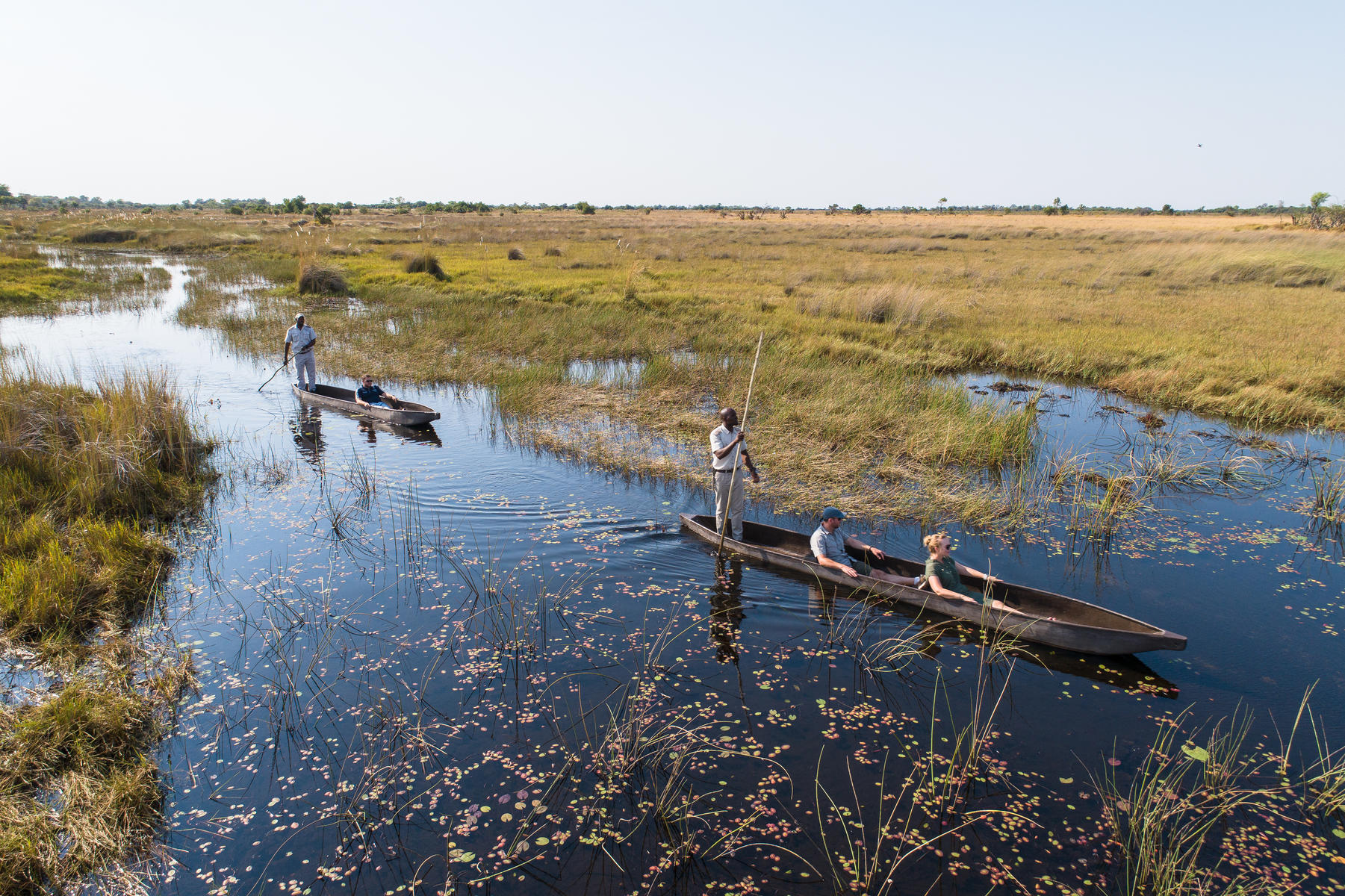
Cultural Immersion and Local Communities
Interaction with Local Tribes
A visit to the Okavango Delta goes beyond natural beauty; it also provides a unique glimpse into the rich tapestry of cultural heritage and traditions of the local tribes. Interacting with these communities can significantly enhance the travel experience, allowing for a deeper understanding and appreciation of Botswana's diverse cultures.
During interactions with local tribes, visitors can expect:
- Warm Hospitality: The people of the delta are known for their welcoming nature. Engaging with locals often involves invitations into their homes or communities for authentic experiences.
- Cultural Exchanges: Many tours include opportunities to participate in traditional ceremonies, such as dances or storytelling sessions, offering personal insights into tribal customs and history.
- Craft Markets: Visitors can explore local craft markets showcasing handmade goods, from beautiful beaded jewellery to intricately woven baskets. Purchasing these items not only supports local artists but also brings home a piece of Botswana’s vibrant culture.
Traditional Practices and Cultural Experiences
The Okavango Delta is a hub for numerous traditional practices that showcase the harmonious relationship between the local tribes and their environment.
Engaging in cultural experiences allows visitors to witness:
- Craftsmanship: Traditional arts, such as pottery and wood carving, are still thriving. Workshops often invite tourists to learn techniques from skilled artisans, fostering a sense of appreciation for the dedication behind each creation.
- Community Storytelling: Elders frequently share stories that preserve their history and wisdom. Participating in these sessions can be both enlightening and entertaining, bringing personal connections to Botswana’s rich heritage.
- Culinary Adventures: Sampling local dishes is an unforgettable experience. Visitors may enjoy meals made from traditional ingredients, often accompanied by storytelling about the significance of the food.
Embracing these cultural facets of the Okavango Delta not only enriches the travel experience but also fosters a profound respect for the traditions and lifestyles that have thrived in harmony with nature for generations.
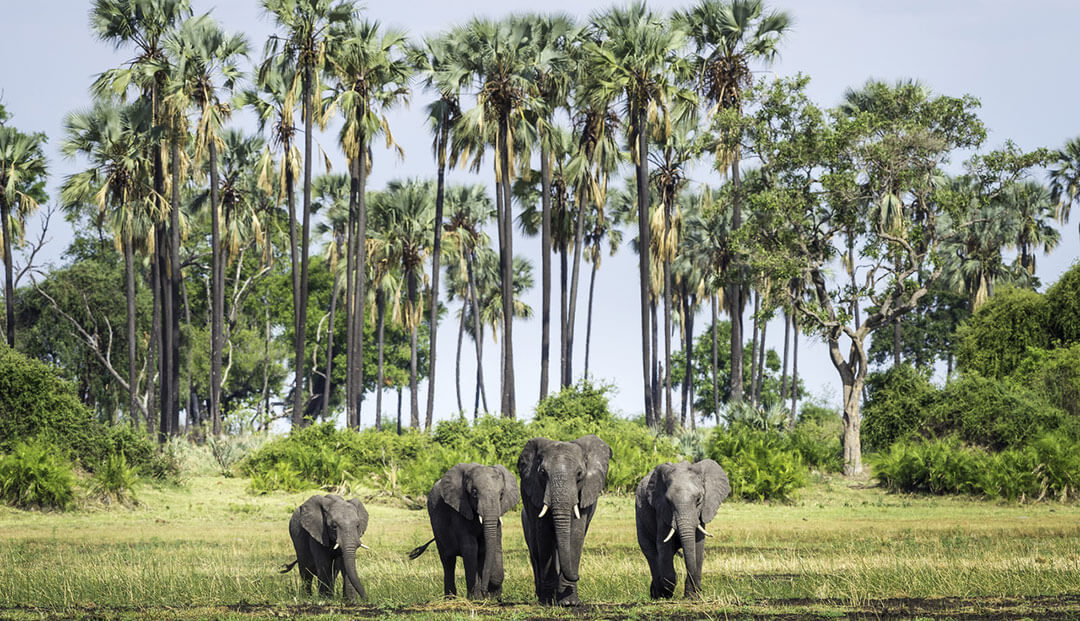
Conservation Efforts in the Okavango Delta
Sustainability Initiatives
The Okavango Delta stands as an extraordinary environmental treasure, but it is also vulnerable to various threats, including climate change and human encroachment. Fortunately, numerous sustainability initiatives actively work to protect this unique ecosystem while encouraging responsible tourism.
Some of the prominent sustainability initiatives include:
- Community-Based Conservation: Local communities are integral to conservation efforts. By involving them in decision-making and conservation activities, these initiatives empower residents to protect their environment while benefiting from sustainable tourism.
- Eco-Tourism Practices: Many lodges and tour operators are committed to eco-friendly practices. These may include using solar energy, promoting waste reduction, and sourcing food locally, thereby minimising their footprint on the delta.
- Education and Awareness Campaigns: Guiding tourists about their role in conservation enhances the overall experience. Tour operators often organise workshops to educate visitors about wildlife protection and sustainable practices.
Protecting the Biodiversity
Biodiversity in the Okavango Delta is rich and varied, supporting everything from elephants to countless bird species. Protecting this wealth of wildlife is paramount for maintaining the ecosystem's health and resilience.
Key strategies for safeguarding biodiversity are:
- Anti-Poaching Initiatives: These initiatives include regular patrols conducted by rangers to mitigate poaching threats and ensure the safety of iconic species, such as rhinos and elephants.
- Research and Monitoring Programs: Ongoing studies assess wildlife populations and their habitats, allowing for proactive measures to be implemented in response to emerging threats.
- Protected Areas: National parks and reserves form a safety net for diverse wildlife, isolating them from developments and hunting and ensuring these areas remain pristine.
Through these dedicated conservation efforts, the Okavango Delta remains not only a breathtaking destination for explorers but also a sanctuary for a multitude of species, reinforcing the interconnectedness of nature, culture, and sustainability in this remarkable region.
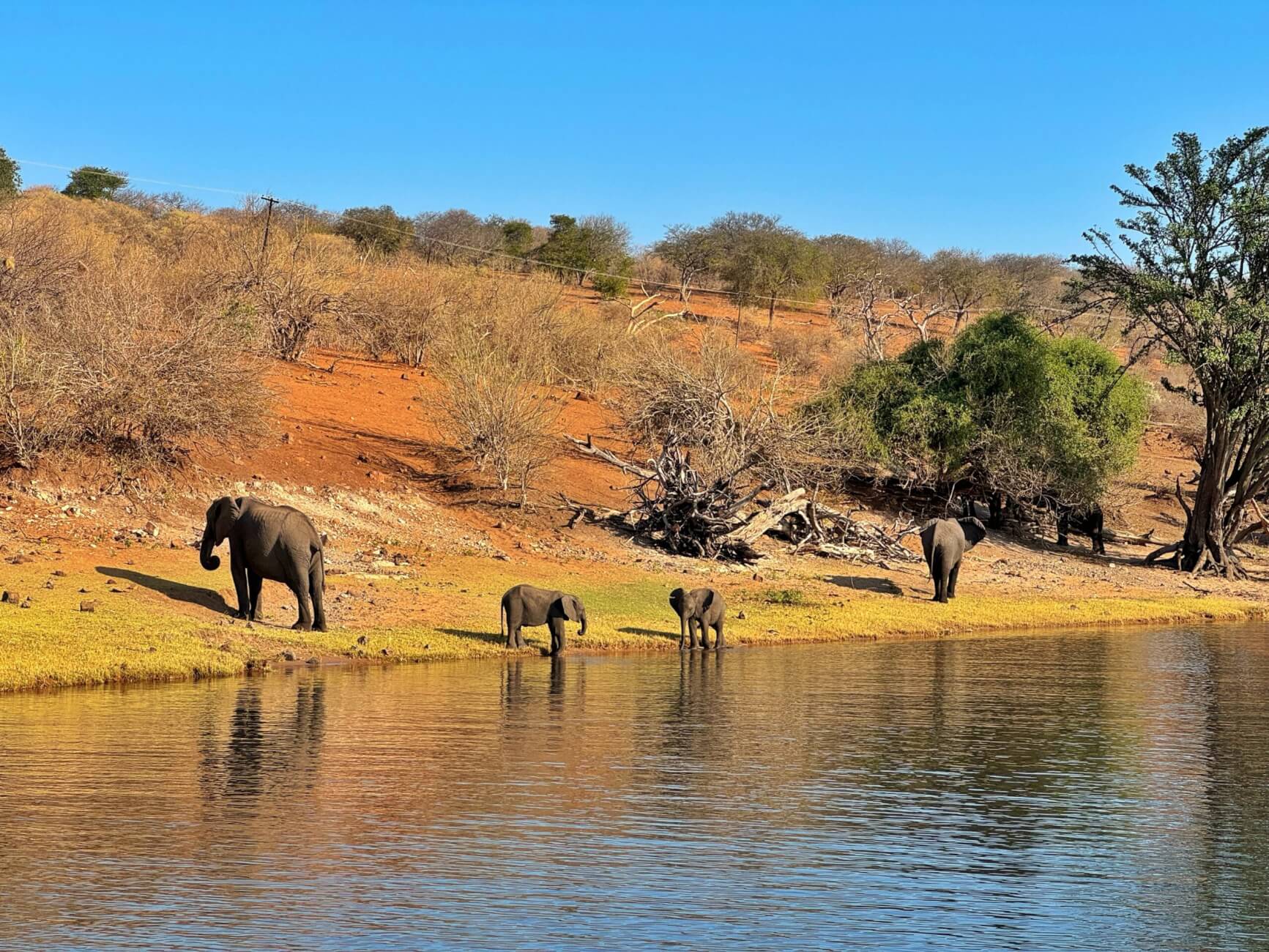
Recommended Itinerary for Botswana Tours
Day-by-Day Guide to Exploring the Delta
Planning a trip to the Okavango Delta can feel overwhelming due to the vast array of experiences available. However, a well-structured itinerary can help maximise your time and ensure you don't miss the highlights. Here’s a suggested day-by-day guide to exploring this incredible destination:
- Day 1: Arrival in Maun Fly into Maun, the gateway to the delta. Spend the day exploring the town and preparing for your adventure.
- Day 2: Transfer to the Delta Board a light aircraft to your chosen lodge or campsite, nestled within the heart of the delta. Settle in and enjoy a welcome dinner under the African stars.
- Day 3: Morning Game Drive Early morning safari to catch the animals at their most active. Spend the afternoon relaxing before an evening boat cruise on the river.
- Day 4: Mokoro Excursion Glide through the waterways in a mokoro, experiencing the delta's ecosystems from a different perspective. Spot birds and other wildlife as your guide shares local knowledge.
- Day 5: Cultural Experience with Local Tribes Engage with local communities, learning about their traditions and perhaps participating in a traditional dance.
- Day 6: Night Safari and Departure Wrap up your adventure with a thrilling night safari, revealing the delta's nocturnal inhabitants before returning to Maun for your flight home.
Must-Visit Destinations and Accommodations
While the delta is rich in activities and wildlife, certain destinations and accommodations enhance the experience further.
Destinations to Explore:
- Moremi Game Reserve: A prime destination for wildlife lovers, offering diverse habitats and plentiful game.
- Chobe National Park: Known for its large elephant population, it can be visited in conjunction with a delta tour.
Accommodations:
- Luxury Lodges: Places like Khwai River Lodge or Eagle Island Camp offer premium experiences with first-class service.
- Tented Camps: For a more authentic experience, consider lodges like Camp Okavango or Xigera Safari Lodge, immersed in nature.
Selecting a tailored itinerary with thoughtfully chosen destinations and accommodations ensures an unforgettable journey through the stunning landscapes of the Okavango Delta. Each day holds new adventures and meaningful connections, creating a magical experience that lingers long after the trip concludes.
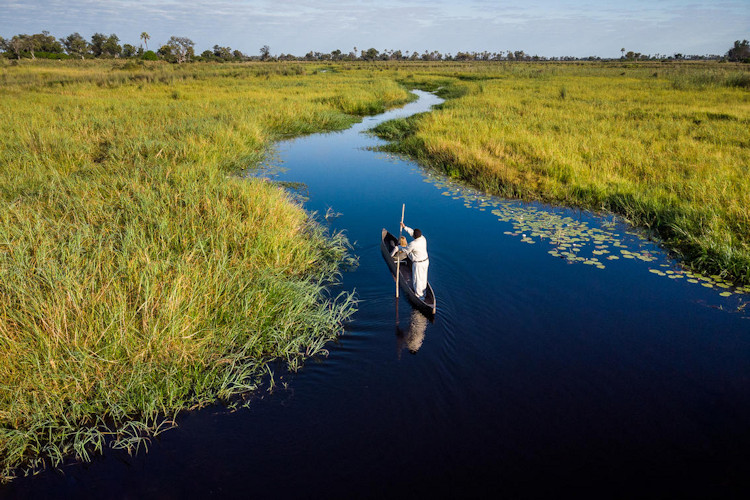
Conclusion and Reflections
Memories from the Botswana Tour
A journey through the Okavango Delta is not just a vacation; it’s an experience that etches memories into the hearts of those fortunate enough to witness its wonders. Each moment in the delta brings a treasure trove of impressions, from the first sight of a herd of elephants bathing in the afternoon sun to the serene silence of a mokoro gliding through lily-covered waters.
Visitors often recount:
- Stunning Sunsets: The vibrant oranges and pinks as the sun dips below the horizon, lighting up the delta.
- Wildlife Encounters: The thrill of watching a pride of lions on the prowl or observing a kingfisher dive gracefully into the water.
- Cultural Connections: Meaningful interactions with local tribes, resulting in not only learning about their traditions but also forming lasting friendships.
Each experience contributes to profound reflections on the beauty and fragility of the environment.
Impact of the Okavango Delta Experience
The impact of an adventure in the Okavango Delta extends well beyond the journey itself. Many visitors return home with a renewed sense of appreciation for nature, understanding the importance of conservation and sustainable tourism. The remarkable biodiversity and vibrant cultures encountered draw attention to the responsibilities we share in preserving such invaluable ecosystems.
Engaging in sustainable travel practices becomes a priority, influenced by:
- Awareness of Environmental Issues: A better understanding of the challenges faced by local wildlife and communities.
- Advocacy for Conservation: Many tourists find themselves sharing their stories and advocating for wildlife protection efforts upon their return.
- Connection to Nature: A heightened awareness of the beauty and intricacies of ecosystems opens eyes to the need to cherish and protect the natural world.
Ultimately, a trip to the Okavango Delta provides not just adventure, but a lasting impact—one that inspires travellers to preserve encompassing beauty for future generations to enjoy.
